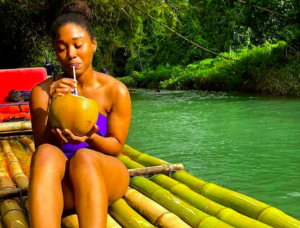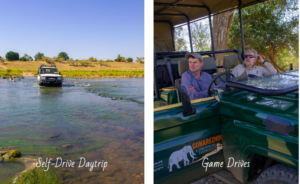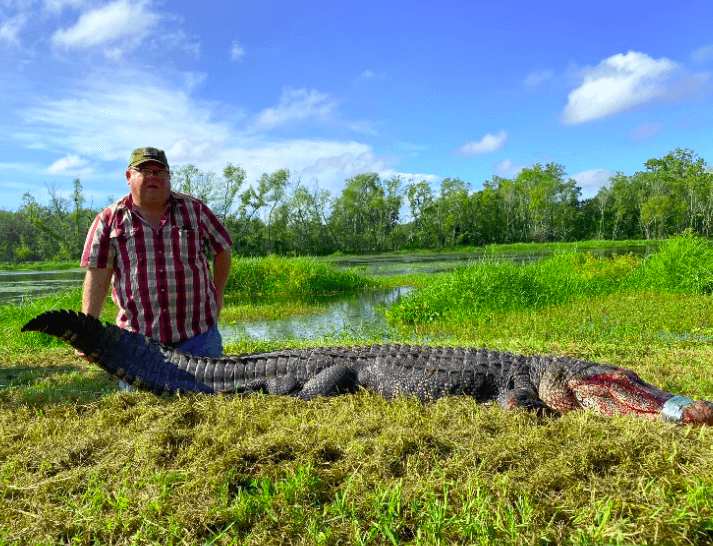
Alligator hunting Georgia.
Welcome to Georgia’s untamed backcountry, where the excitement of alligator hunting awaits. Georgia provides an amazing hunting experience for those looking for the ultimate adrenaline rush, nestled amid the various ecosystems of rivers, swamps, and marshes. We go into the realm of alligator hunting in Georgia, where the ancient reptile predators hide under the water’s surface, in this story.
Georgia offers a unique setting for an amazing alligator hunting journey, from the twisting rivers of the Okefenokee Swamp to the coastal marshes and hidden wetlands. Join us as we investigate the tactics, laws, and breathtaking scenery that make Georgia an ideal alligator hunting location. Prepare to embrace the wild and release your adventurous spirit as we go on a voyage into the unknown.
Alligator hunting locations in Georgia
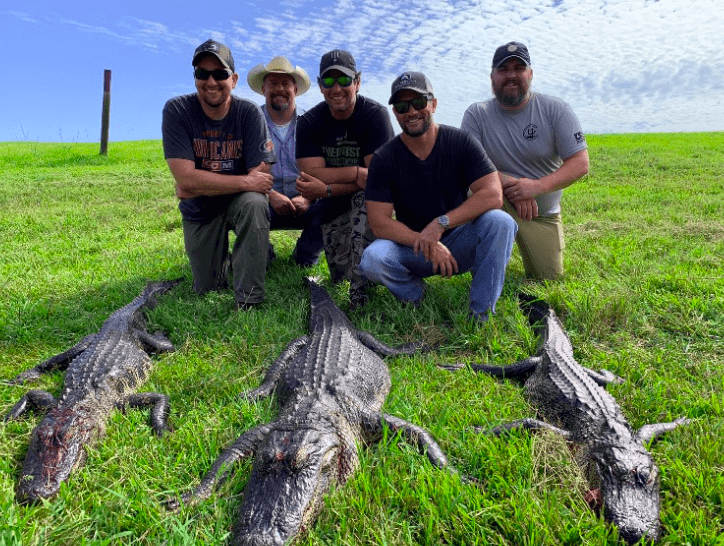
Alligator hunting units in Georgia are defined regions inside the state where alligator hunting is legal. The Georgia Department of Natural Resources (DNR) developed these divisions to assist manage and disperse the alligator harvest. Here are some important facts about alligator hunting units in Georgia:
Coastal Area:
The Coastal Zone is one of Georgia’s principal hunting units, comprising the Atlantic Ocean’s coastal districts. It includes alligator-infested environments such as saltwater marshes, tidal streams, and estuaries.
River Zone:
The River Zone encompasses the state’s principal rivers and waterways, including the Savannah River, Altamaha River, Ogeechee River, and others. These rivers provide alligator habitat and give hunting chances.
Southwest Zone:
The Southwest Zone include regions such as the Okefenokee Swamp and adjoining marshes in southern Georgia. This area is well-known for its various animal populations, which include alligators.
Central Zone:
The centre Zone contains numerous water bodies and wetland ecosystems in the centre section of Georgia. It gives hunting possibilities for alligator fans in the state’s interior regions.
Lake Seminole Zone:
Lake Seminole, which is located in southwest Georgia, has its own hunting zone. This zone provides unique hunting opportunities on the lake and its surrounding marshes and rivers.
Flint River Zone:
The Flint River Zone encompasses locations located along the Flint River, which flows across western and southern Georgia. This zone offers alligator hunting chances along the river and its surrounding marshes.
Public Wildlife Management Areas:
Georgia has various public wildlife management areas where alligator hunting is permitted. These areas are carefully managed by the DNR to ensure sustainable alligator populations and provide ample hunting opportunities.
It’s crucial to remember that the actual limits and restrictions for each hunting unit might change from year to year. The Georgia Department of Natural Resources (DNR) establishes criteria and offers extensive information on alligator hunting units, such as permit allocations, bag limits, and any other restrictions or requirements.
Before organising an alligator hunt in Georgia, check the Georgia DNR’s official website or call their offices directly for the most up-to-date information on alligator hunting units and their accompanying restrictions.
Georgia Alligator hunting season
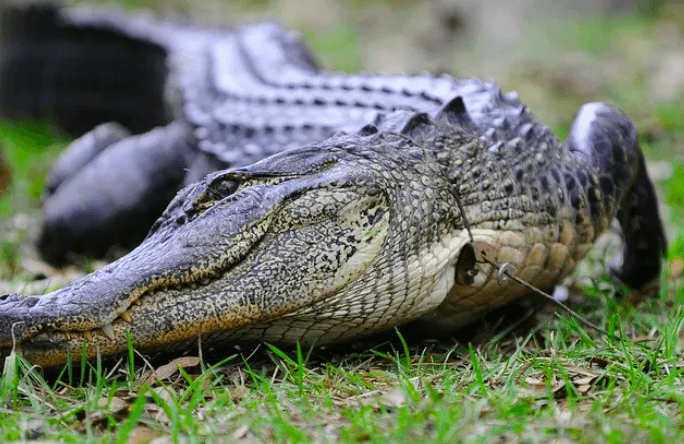
The Georgia Department of Natural Resources (DNR) regulates the alligator hunting season. Here’s an explanation of Georgia’s alligator hunting season:
Season length:
Georgia’s alligator hunting season normally lasts from mid-August until mid-October. The exact dates might change from year to year, and the season is broken into various quota hunt sessions.
System of Quotas:
Alligator hunting in Georgia is governed by a quota system. Each hunting zone in the state has a certain number of licences available, and hunters must apply for one via the quota hunt application procedure.
Application for Quota Hunting:
To participate in the alligator hunting season, hunters must first apply for a quota hunt licence. The application season normally begins in May or June and lasts for a set amount of time.
Lottery Picking:
Following the close of the application period, the Georgia DNR holds a random lottery to choose hunters for the available licences. The number of licences issued is determined by the quota allotted to each hunting zone.
How to hunt alligator in Georgia
Hunting alligators in Georgia necessitates careful planning, preparation, and respect to Georgia Department of Natural Resources (DNR) laws. Here’s a general guide on alligator hunting in Georgia:
Obtain the Necessary Permits:
Before hunting alligators in Georgia, you must first get the required licences from the Georgia Department of Natural Resources. This usually includes an alligator hunting licence as well as tags. Permit applications are typically accessible within a set period of time.
Study Alligator Behavior and Habitat:
Acquaint yourself with alligator behaviour, habitats, and patterns. Discover their eating habits, preferred habitats (including marshes, rivers, and swamps), and normal migration patterns. This information will assist you in locating good hunting grounds.
Find Hunting Locations:
Scout possible hunting grounds inside Georgia’s approved alligator hunting units. Look for alligators in regions such as marshes, rivers, and canals. To find prospective hunting sites, consult maps, chat to local wildlife officials, and seek advice from experienced hunters.
Prepare Your Approach:
Choose your favourite hunting tactic, such as stalking, baiting, or employing boats. Each strategy has advantages and disadvantages. Spot-and-stalk includes approaching alligators discreetly and firing when within range. Baiting is a method of luring alligators into a certain region by using attractants. Boats are frequently utilised to travel canals and access hunting grounds.
Safety Considerations:
Alligator hunting can be dangerous, so prioritize safety at all times. Be aware of your surroundings, follow firearm safety protocols, and wear appropriate safety gear, including life vests when on the water. Alligators are powerful and quick, so maintain a safe distance and exercise caution during the hunt.
Harvesting Techniques:
Once you have located an alligator, carefully approach it within range. Use the designated hunting tools, such as handheld instruments like snatch hooks or harpoons, to secure and subdue the alligator. Follow proper harvesting techniques to ensure a humane and ethical harvest.
Reporting and Tagging:
Following the capture of an alligator, properly tag it using the given tags in accordance with Georgia DNR standards. Report your harvest to the Georgia DNR within the timeframe specified, including the location, size, and tagging of the captured alligator.
Making Use of the Harvest:
Process the collected alligator properly, assuring sanitary practises and accordance with Georgia DNR laws. Alligator flesh may be used in a variety of dishes, while the skin can be used to make leather goods or taxidermy. Seek advice on processing processes if necessary.
Wildlife and the environment must be respected:
Respect wildlife and the environment while hunting alligators. Respect the sustainability and maintenance of alligator populations by following Georgia DNR rules and adhering to ethical hunting practises.
For the most up-to-date information on alligator hunting regulations, specific permit requirements, hunting methods, and any additional guidelines or restrictions that may apply to hunting alligators in Georgia, always consult the Georgia DNR’s official website or contact their offices directly.
How to obtain alligator permit and license in Georgia
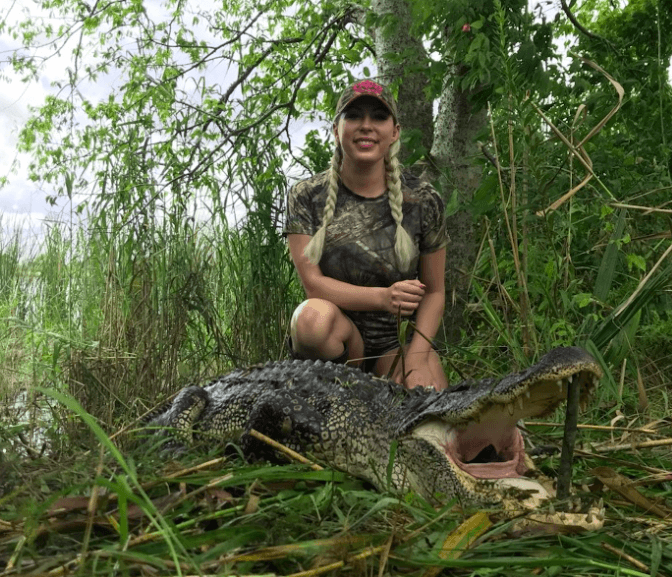
To receive an Alligator Permit and Licence in Georgia, you must complete the Georgia Department of Natural Resources (DNR) application process. The following is a general guide to obtaining an Alligator Permit and Licence in Georgia:
Examine Your Eligibility:
Check to see whether you are eligible to apply for an Alligator Permit and Licence in Georgia. These conditions may include age limitations and residence requirements.
Application Timeline:
Several months before the commencement of the hunting season, the Georgia DNR begins the application process for alligator permits and licences. The precise dates may differ from year to year, so check the Georgia DNR’s official website or hunting rules for the current application period.
Apply either online or by mail:
The Georgia DNR allows you to apply for alligator permits and licences either online or by mail. To use the online application system or get a paper application form, go to their official website or contact their offices.
Fill out the application:
Fill out the application form completely and submit all requested information. Personal information, contact information, hunting preferences, and any other documents required by the Georgia DNR may be included.
Send the Application:
If you are applying online, use the online system to submit your application. If applying by mail, send the completed application form and any required documentation to the Georgia DNR’s address. Make sure you submit your application within the time frame specified.
Processing and notification of applications:
If the number of applicants exceeds the number of available permits, the Georgia DNR will assess the applications and undertake a selection process. A random drawing or lottery technique may be used in the selecting process. The Georgia DNR will notify successful candidates.
Pay the Permit and License Fees:
If your application is accepted, you must pay the permit and licence payments within the timeframe provided. The charge amount varies, so consult the rules or contact the Georgia DNR for the most up-to-date fee information.
Attend Mandatory Orientation or Training:
Prior to the hunting season, the Georgia DNR may require applicants to attend a mandatory orientation or training session. This workshop will go over hunting rules, safety requirements, and other pertinent information.
It’s important to note that specific details and requirements for obtaining an Alligator Permit and License in Georgia can vary each year. It is recommended to visit the Georgia DNR’s official website or contact their offices directly to obtain the most up-to-date and accurate information regarding the application process for Alligator Permits and Licenses in Georgia.
Related posts.
- Alligator Hunting in Louisiana’s Wild Bayous. Full Guide.
- Texas Alligator Hunting: Where Size Meets Adventure”. All You Need To Know.
- Exploring the Finest Alligator Hunting States: Where Adventure Awaits!
- Fiido 500W M21 Fat Tire Electric Bike Full Review.
- Thrilling Boar Hunting Adventures in Hungary: Unleash Your Inner Hunter.
FAQs
When is the Georgia alligator hunting season?
Georgia’s alligator hunting season normally begins in early September and lasts for a set amount of time, as defined by the Georgia Department of Natural Resources (DNR).
Is a permission required to hunt alligators in Georgia?
Yes, a permission is necessary in Georgia to hunt alligators. Alligator permits are issued by the Georgia DNR through a quota hunt application procedure.
In Georgia, how can I apply for an alligator permit?
In order to apply for an Alligator Permit in Georgia, you must do so within the authorised application time, which is usually in May or June. Applications can be mailed or filed online.
Is there an age limit for alligator hunting in Georgia?
Yes, there are age limitations in Georgia for alligator hunting. To participate in the hunt, applicants must be at least the minimum age stipulated by the Georgia DNR.
What are the alligator hunting bag restrictions in Georgia?
In Georgia, the bag limit for alligator hunting is usually one alligator per permit. This protects the alligator population’s sustainability and allows for careful hunting.
Can I go alligator hunting at night in Georgia?
Yes, alligator hunting in Georgia is often done at night, when alligators are most active. Hunting hours and particular laws may differ depending on the season, so check the Georgia DNR’s regulations for the current season.
What types of hunting methods are allowed for alligator hunting in Georgia?
Georgia allows various hunting methods for alligator hunting, including spot-and-stalk, baiting, and using handheld instruments like snatch hooks or harpoons. Firearms are also permitted.
Can I use dogs to assist in alligator hunting in Georgia?
No, using dogs to hunt or assist in capturing alligators is not allowed in Georgia.
Are there specific size restrictions for harvested alligators in Georgia?
Yes, Georgia has size restrictions for harvested alligators. Alligators must meet certain minimum lengths to be legally harvested. The exact size restrictions may vary by hunting zone, so consult the Georgia DNR’s regulations for details.
Can I sell the flesh and skin of alligators that I catch in Georgia?
Yes, sportsmen in Georgia can sell alligator flesh and hides, subject to Georgia DNR restrictions and reporting requirements.
Are there any alligator hunting restrictions in Georgia?
Yes, some sites in Georgia, such as wildlife sanctuaries or refuges, may be off-limits to alligator hunting. Always verify the Georgia DNR laws to ensure that any area-specific limits are met.
Can non-residents hunt alligators in Georgia?
Non-residents can hunt alligators in Georgia if they receive the proper permits and licences, which are subject to Georgia DNR restrictions and criteria.


